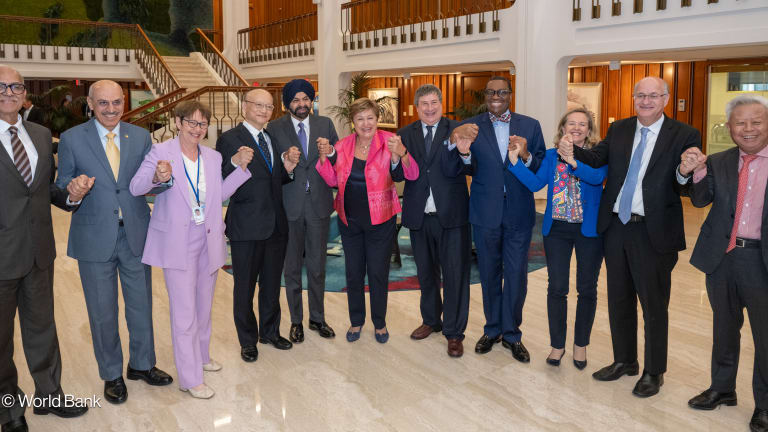
Now that the sustainable development goals are — in the main — agreed, what needs to happen to turn this global manifesto into a national policy agenda?
The clock to SDG attainment will start ticking Jan. 1, 2016. Here are five things that will be important to ensure the much-debated goals and targets — and the overarching vision of a new future for everyone — actually start to be implemented.
1. In too many countries, the SDGs have been seen purely as a diplomatic process and therefore led by the Ministry of Foreign Affairs, with capitals not well-versed in the negotiations. Once the outcome document is signed by heads of state in September, governments should work quickly to ensure that all line ministries discuss the implications for their country. This will include analysis to decide on priorities and trade-offs.
2. Civil society should also mobilize quickly. Coalitions such as Beyond2015 and Action2015 have worked well to bring groups together to campaign on the SDGs as a whole rather than just promoting single issues. This has been vital to the process, but there is a danger that this level of organization will fall away after September. It will be important to have civil society — and academia, think tanks and the private sector — continue to advocate for the entire goal set, otherwise there’s a danger of orphan goals that no one supports.
3. As countries consider national targets — that is, translating the global goals into nationally relevant ones — it will be vital to get the right balance of achievability and ambition. One problem with the SDGs was that the global targets were adopted wholesale by countries, meaning that those who were already furthest behind, but who made significant progress still missed the goals in most instances.
This is not a smart way to incentivize action.
For that reason, national targets should be within the realm of what the country has already been achieving (in other words, possible) but with extra ambition. In a paper, my colleagues at the Overseas Development Institute suggest the right level of ambition is current performance plus a stretch of 10 percent. The U.N. Secretary-General’s Post-2015 Special Envoy Amina Mohammed has suggested that the SDGs be considered as floors rather than ceilings when it comes to country target setting.
4. Once country plans have been agreed, donors will need to work with governments to ensure that financing is available. The recent International Conference on Financing for Development in Addis Ababa, Ethiopia, marked the end of financing for development as practiced under the Millennium Development Goals.
It is now clear that not only is aid going to be inadequate to fund the much wider agenda of the SDGs — even before economic growth and its implications for increasing infrastructure is included (with the now-famous mantra that we’re talking not billions but trillions) — but also that development is about the new tripartite of aid, private investment and domestic resource mobilization.
Financing the SDGs will be a matter of donors working with countries to increase tax revenues, and multilateral development banks working with the private sector to ensure shovel-ready (and dollar-ready) projects — as well as the more traditional official development assistance in low-income countries. However, donors should not use this as an excuse to renege on aid commitments and improved spending modalities. Financing for the leave-no-one-behind agenda in the poorest countries will need to come primarily from donors for the medium term, for instance.
5. Moving quickly. The MDGs were agreed largely — but not exclusively — in smoke-filled rooms in New York, meaning that several years were lost at the start just getting countries to buy into the concept. The SDGs on the other hand have been agreed in an unprecedentedly participatory fashion, so governments will have no excuse not to start on implementation as soon as makes sense for the national context — in other words using the SDGs as the basis for their next national development strategy. And for many countries, including the behemoth China whose next five-year social and economic plan is set to be approved in March 2016, that means next year.
Sustaining Development is a three-month online series exploring the post-2015 development agenda hosted by Devex in partnership with Chevron, FXB, Global Health Fellows Program II, Philips, Pfizer, UNIDO, U.N. Volunteers and the U.S. Council for International Business. We will look at the practical steps needed to move the sustainable development goals from concept to reality. Visit the campaign site and join the conversation using #SustainDev.








